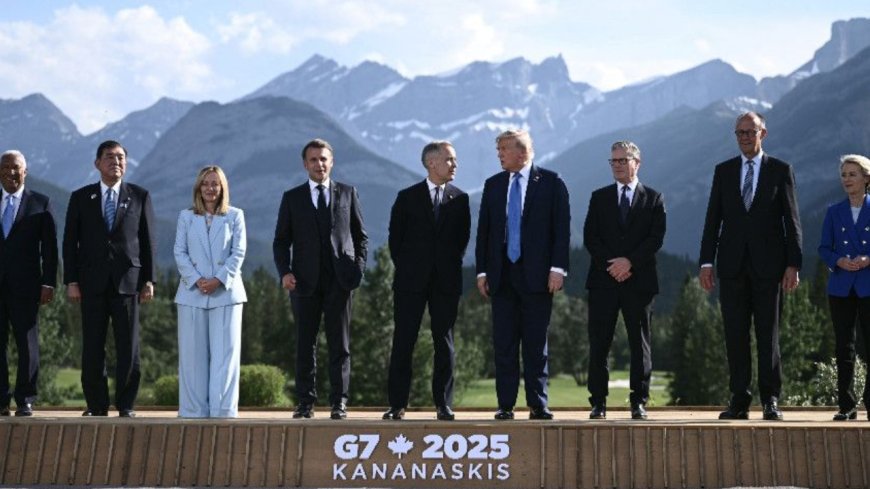'Iran can never have nuclear weapon': G7 issues joint statement; calls for 'de-escalation' in Middle East
G7 leaders, amidst escalating tensions following Israel's strikes on Iranian nuclear facilities, declared that Iran must never possess nuclear weapons and called for de-escalation in the Middle East. The summit was disrupted by the conflict, with the US President Donald Trump issuing a warning to Tehran and leaving early, while urging Iran to negotiate immediately.

'Iran can never have nuclear weapon': G7 issues joint statement; calls for 'de-escalation' in Middle East
Breaking News, Daily Updates & Exclusive Stories - theoddnaari
In a significant declaration amidst rising tensions in the Middle East, G7 leaders have reaffirmed their strong stance that Iran must never acquire nuclear weapons. This joint statement comes in the wake of escalating conflicts following recent Israeli airstrikes on Iranian nuclear facilities. The summit revealed critical insights into the geopolitical atmosphere, highlighting the urgent need for diplomatic engagement.
Context of the G7 Statement
The recent G7 summit gathered leaders from the world's largest economies, including the United States, Canada, France, Germany, Italy, Japan, and the United Kingdom. The summit took place under the looming shadow of military actions in the region, which have created a complex web of international relations and concerns about security and stability. Following Israel's military strikes, tensions between Iran and its adversaries have reached unprecedented levels, prompting immediate discussions among G7 members.
Major Takeaways from the Summit
One of the focal points of the summit was the urgent need to curb Iran's nuclear ambitions. American President Donald Trump played a pivotal role, emphasizing that the United States would not tolerate any attempts by Iran to develop nuclear weapons. His early exit from the summit, however, sparked speculation about the stability of US-Iran relations as he urged Tehran to engage in negotiations promptly. The G7 leaders collectively echoed the call for de-escalation, recognizing the importance of dialogue in resolving the ongoing conflict.
The Road Ahead: Diplomacy Over Conflict
While G7 leaders express solidarity against a nuclear-capable Iran, they simultaneously underscore the necessity of peaceful dialogues. Experts suggest that increased diplomatic engagement could provide pathways to resolve the crisis without further military intervention. The idea is to leverage international pressure while fostering discussions that bring both Iran and its regional adversaries to the negotiating table.
Global Reactions
The G7's statement has drawn mixed reactions globally. Some nations advocate for a hardline approach, demanding stringent sanctions against Iran, while others urge for collaborative efforts focusing on disarmament and peace-building. The international community remains attentive to further developments as this situation unfolds, emphasizing the need for collective resilience against threats to global security.
Conclusion
As this complex scenario continues to develop, the G7's decisive stance against Iran's nuclear aspirations serves as a crucial component of global diplomatic efforts towards stability in the Middle East. The call for de-escalation promotes hope for mediation and compromise, allowing nations to navigate these turbulent waters without resorting to conflict. While diplomatic solutions may encounter numerous hurdles, the united front displayed by G7 nations may pave the way for a more secure and peaceful future.
For more updates, visit theoddnaari.com.
Written by Anjali Mehta, Priya Sharma, and Neha Gupta, Team theoddnaari.







